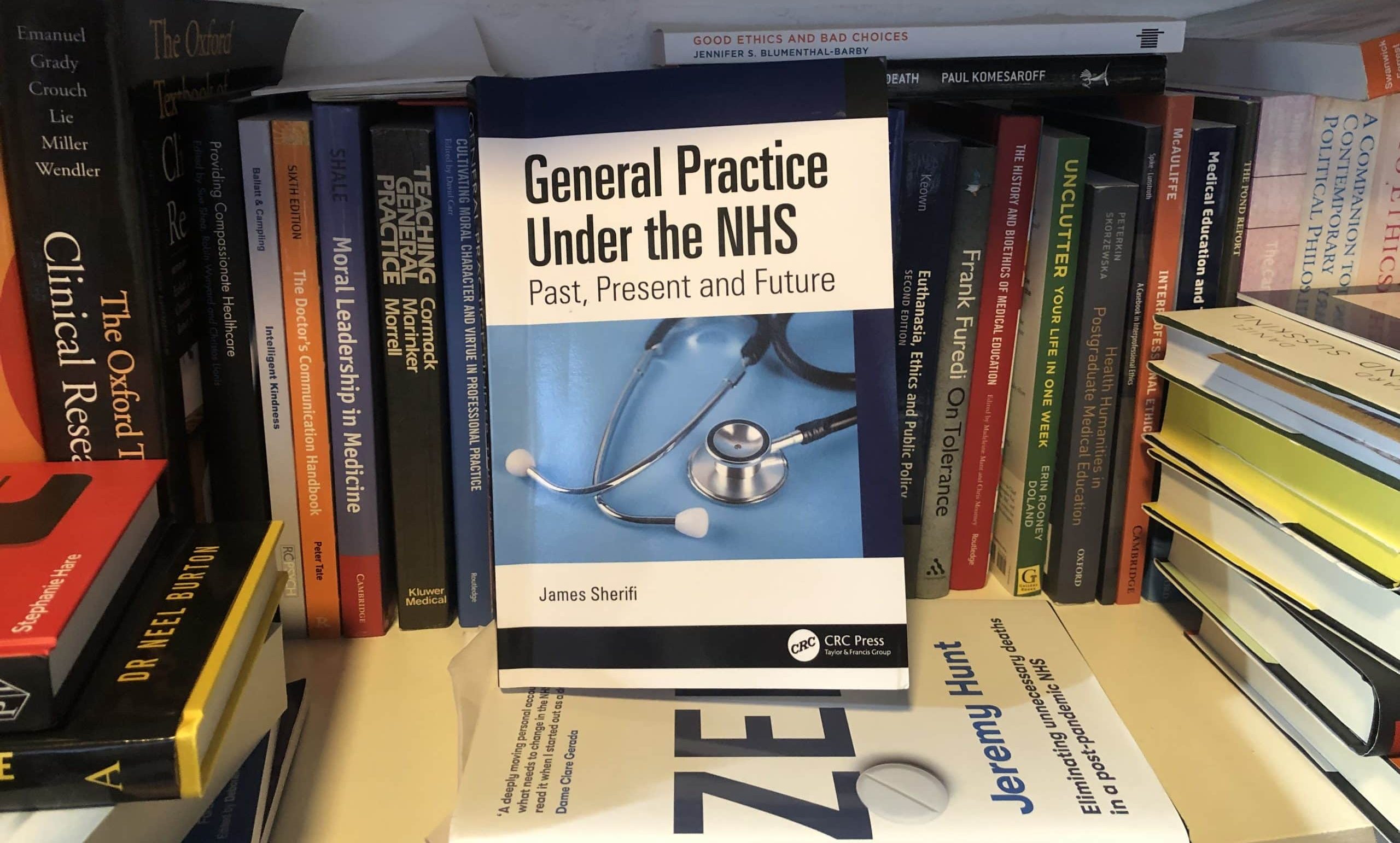 Andrew Papanikitas is deputy editor of the BJGP, and a GP in Oxford.
Andrew Papanikitas is deputy editor of the BJGP, and a GP in Oxford.
I open this book slightly sceptically. Medical history books can sometimes be a little dry, with personal relevance to the reader lost in the quest for academic rigour. However, James Sherifi has not written a history per se but a rigorous reflective account of NHS general practice.
As I read the book, I found ‘What happened?’ until now, my feelings of ‘So what?’ were immediately addressed, and the final chapter essentially asks, ‘What now?’ Ultimately the book gives the reader a clear if elegantly simple understanding of how and why general practice in the UK is as we recognise it.
“Some of the topics are challenging to the uninitiated, such as NHS policy reform over the last seven decades … “
The chapters reflect the strains on, and the interests of, general practice, including the practice team, the working week, out of hours, information management, changes in therapeutics, education, regulation, and finance.
Some of the topics are challenging to the uninitiated, such as NHS policy reform over the last seven decades, key changes to regulators, the British Medical Association, and the Royal College of General Practitioners.
It is therefore refreshing to read a clear account. All of these are sensitive to the issues of frontline practice — for example, changing patients onto a cheaper, equally effective drug, only to have to change the prescriptions again when the favoured drug company raise their prices.
The book gives examples of how treatment of various conditions has changed over time in primary care. The sections outlining changes in therapeutics by system, for example, rheumatological disease and mental health, are in outline only but nonetheless useful.
“The book is marketed to those contemplating a career as GPs, trainees, and GP educators, as well as historians and policymakers.”
The most intriguing chapter for me at the outset was the closing chapter on the future of general practice. I read it first and wanted to start again at the beginning. It possibly should be read as somewhere in between what should happen and what will happen — Sherifi predicts that practices are unlikely to take back out-of-hours direct provision of services, but these will become better coordinated with emergency departments.
He also predicts that new technologies like genome mapping will be widely adopted once the ethical issues have been laid to rest — as someone who teaches medical ethics and has seen a marked drive to ‘mainstream’ genomic medicine with ethics running to catch-up, this made me chuckle.
The book is marketed to those contemplating a career as GPs, trainees, and GP educators, as well as historians and policymakers. It is hard to satisfy all these groups, but with a blend or research, situated experience, and humour, the author may have cracked it. If you want an understanding of how we are where we are in NHS general practice, and where we might end up, read this book and maybe you may have more of a chance in influencing the outcome!
Featured book: James Sherifi, General practice under the NHS: past, present and future, CRC press, 2023, PB, 320pp, £27.99, 978-1032188294
Featured photo by Andrew Papanikitas, 2022






